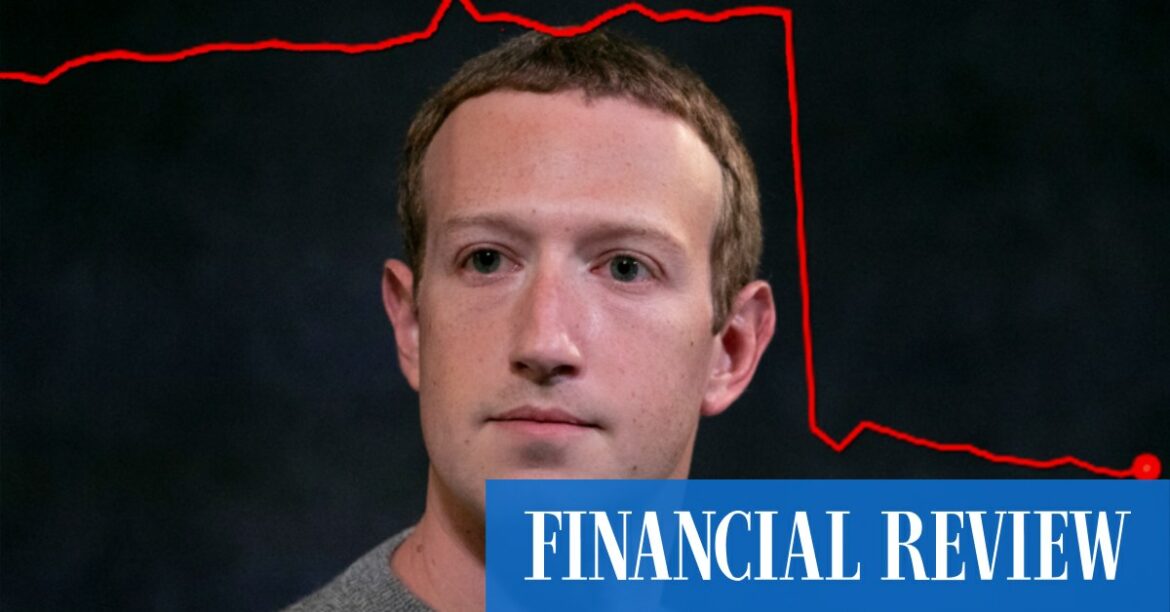Despite Facebook’s name change to Meta last year – a pivot that shows the company at least recognises the problem it is facing, given that the “metaverse” is just an embodiment of web3 technologies – 98 per cent of the company’s revenues are still from digital advertising, which represents the old, web 2.0 model, Mr Barnes said.
There’s going to be a big exodus of users over the coming five years unless Facebook is able to do something.
— Trent Barnes, Zerocap.
“Their innovation is still geared towards ‘How do we increase revenues?‘. They need to shift that to ‘How do we increase user experience, user community, and the best interest of the users?’,” Mr Barnes said.
“Facebook will need to become interoperable with the metaverse if they want to stay relevant. But it’s going to be very hard for them to make that shift.
“If you can take your memories from Facebook and take them into Grand Theft Auto or World of Warcraft, that will take away advertising revenue from Facebook because their users are no longer unique to Facebook.
“It is going to have to come up with some other revenue model. There’s going to be a big exodus of users over the coming five years unless Facebook is able to do something.”
Scott McKeon, co-founder and head of growth at the Sydney-based mobile-working start-up Espresso, has been contemplating how his company is going to reach customers in the future, and a shift away from social media advertising towards the decentralised, community-based Web3 world might be on the cards, he said.
“If you look at a big web 3.0 project like bitcoin, the community around them is incredible. They’re not just apathetic users,” Mr McKeon said.
“As a small but growing consumer electronics start-up, up against companies that are just so much bigger than us, we’re looking at how we can create a community around our technology and the mobile lifestyle it embodies.
“I’m looking at web 3.0 as a way of enabling community in a way that is more than just a loyalty program.”
One possibility for e-commerce companies such as Espresso was non-fungible tokens (NFTs), that would help companies “identify their most loyal and engaged customers and build a community around them,” he said.
Users could buy an NFT to gain initial membership to the community, but also earn NFTs when they participated in the community by giving feedback or writing reviews.

Advertising is getting a little old, says Robby Wade, co-founder of ThisApp. Louie Douvis
Such community building could actually take place on the Facebook platform, Mr McKeon said, but Meta would need to loosen its reins and let the communities act more autonomously than it did now.
“We’ve already seen how Facebook went from being a newsfeed to being Facebook Groups. That’s what everything is heading towards – back towards community,” he said.
“If Facebook can adapt, it will be to create environments for people to enable community groups. It has the team and the scale to be able to deliver on that. It’s definitely in their core competency. It’s just a question of whether they will take that path.”
Robby Wade, co-founder of the online chat company ThisApp which is using web3 technologies to take on Meta’s WhatsApp, said that alongside NFTs the next generation of businesses could also use DAOs to help create communities around their products.
DAOs gave customers voting rights in the company, and a sense of shared control over the future of the technology they were buying.
“They’re a little dangerous for early-stage start-ups because you can end up with design by consensus, but once you’ve hit product-market fit, you can slowly decentralise the platform over to the community,” he said.
Such a shift to decentralised, customer-owned companies presented a huge problem for “juggernauts” such as Facebook, Mr Wade said.
In the web3 model, companies wind up creating value for their customers, rather than just extracting value from their users by advertising to them.
“If you think about ThisApp, our platform is essentially valueless if users aren’t using it. Users are all of the value in our platform,” Mr Wade said.
“Web 3.0 lets you partner with your users. Advertising is just becoming a little bit old.”

